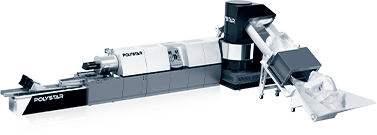Metal detector in recycle
Metal detectors used in recycling facilities vary in complexity and capabilities depending on the specific application. Here are a few types commonly used:
Ferrous Metal Detectors: These detectors primarily target ferrous metals, which contain iron. They use magnetic fields to detect and separate metals like steel and iron.
Non-Ferrous Metal Detectors: These detectors target non-ferrous metals such as aluminum, copper, and brass. They use eddy current technology or other methods to detect and separate these metals from the waste stream.
Eddy Current Separators: These separators use electromagnetic induction to create an eddy current in non-ferrous metals, causing repulsion that separates them from the rest of the materials.
X-Ray Metal Detectors: These detectors use X-ray technology to identify and separate metals from the waste stream. They can detect both ferrous and non-ferrous metals and are often used in more advanced sorting processes.
The precision of a metal detector refers to its ability to accurately detect and distinguish between different types of metals, as well as its ability to minimize false positives or false negatives. Several factors can affect the precision of a metal detector:
Sensitivity Settings: Metal detectors can be adjusted to different sensitivity levels, which can affect their ability to detect smaller or less conductive metals. Finding the right balance between sensitivity and specificity is crucial for maximizing precision.
Detection Technology: Different detection technologies, such as magnetic fields, eddy currents, or X-rays, have varying levels of precision depending on the type and size of the metals they are designed to detect.
Calibration: Regular calibration of metal detectors ensures optimal performance and accuracy. Calibration adjusts the detector to account for environmental factors and variations in the materials being scanned.
Signal Processing Algorithms: Advanced signal processing algorithms can help differentiate between different types of metals and filter out noise, improving the precision of metal detection systems.
There are many brands metal detectors in Chinese market, some foreign brand, some domestic brand, no matter what brand the client need, we are always the best cost performance
Anterior:Polyethylene (PE) recycle



